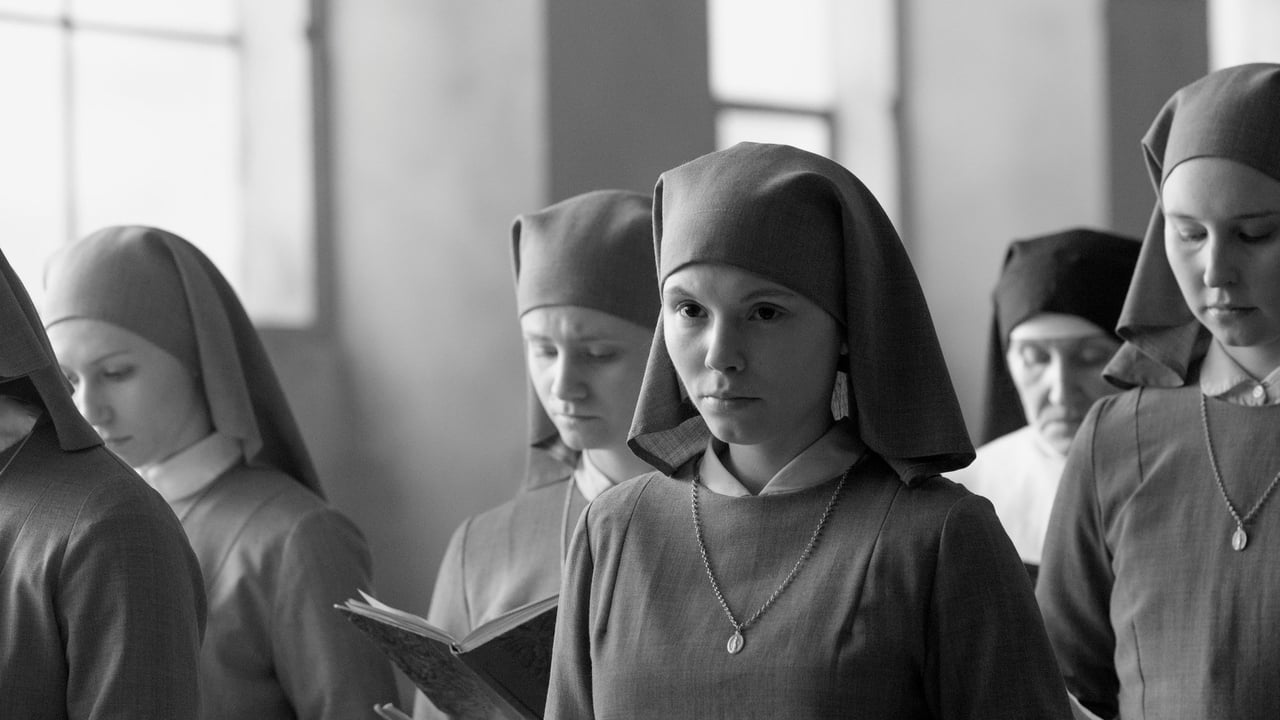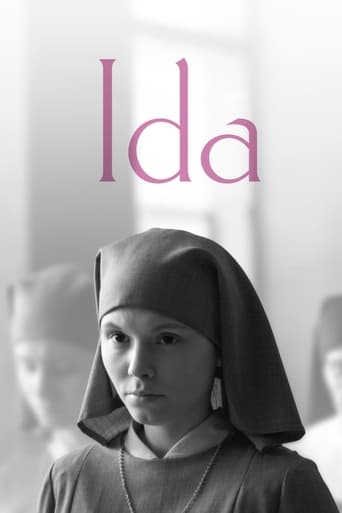AniInterview
Sorry, this movie sucks
ReaderKenka
Let's be realistic.
Tedfoldol
everything you have heard about this movie is true.
Sameer Callahan
It really made me laugh, but for some moments I was tearing up because I could relate so much.
zzzorf
This movie was so simply shot. The black and white made it seem more realistic for the time it was set in and the simplicity of the shots meant there was nothing distracting you from the story.It is in the story that the simplicity moved away. I don't mean it was hard to follow, on the contrary, it was quite easy to understand what was going on. I mean more there was layers upon layers of context that will require multiple watches to get the full understanding, though the basic understanding the first watch gives you is still a satisfying amount.
paul2001sw-1
Pawel Pawlikowski's beautifully-shot film 'Ida' is a sparse, yet unconventionally structured, film about a young nun's discovery of a hidden past in 1960s Poland. The Poles suffered terribly in World War Two, but the relationship of the Christian majority to their Jewish neighbours was complex and far from unsullied, and post-war, there was never a public accounting in the way that took place in the aggressor state of Germany. The film addresses the aftermath of this, and does so in an appropriately complex way.The style is familiar from Pawlikowski's other works, like 'Last Resort', and the aesthetic is powerful, even though it always seems a little like cheating to shoot a film set in the past in black-and-white (I should note that in his early works, Kieslowski used colour - and it's absence - wonderfully without resorting to monochrome). Perhaps it's the black-and-white which also reminded me of Jarmusch's 'Stranger than Paradise', although 'Ida' is less a self-conscious film. It won at the Oscars, although one senses that a film of this type can only win at the Academy in the category for foreign-language movies - American Oscar-winners are rarely this indirect and bare. Agata Trzebuchowska is good in the title role, but Agata Kulesza steals the show as her troubled aunt.
FabulousFeline
Ida is a beautiful film. Set in post-war Poland, the state of the environment is rather bleak. Shots rarely contain more than three people at once, and all sounds excluding a beautiful Bach piano piece played at the end is diegetic. The sets are dirty yet minimalistic, giving it a view of a city which looks lived in. The film follows Ida, or Anna by her Christian name, as she leaves the Convent where she was raised to meet her aunt, Wanda, for the first time. Wanda is played by Agata Kulesza, who makes her feel like a human who has lived a full and complex life, much like our own, instead of a life built strictly within the context of the film. She's a Jewish (albeit atheist), aging, single alcoholic who spends her days mindlessly filling her internal void through sex. This is in stark contrast to the young Ida who spends her days repetitively worshipping god, in preparation to take her vows. Their conflicting values are showcased several times throughout the film in interesting ways. Wanda asks if Ida ever has sinful thoughts of carnal love, to which Ida replies with a no. Wanda replies "That's a shame. You should try, otherwise what sort of sacrifice are these vows of yours?". This is the primary theme of the film. We soon learn Wanda had a child, but her boy was killed during the war for being Jewish, but Ida survived. Wanda has now experienced an example of the theme. She has undoubtedly contemplated suicide prior to the film's beginning, but as she learns more of her loved ones past, she is now able to take her life after experiencing fully what life has offered and with the more knowledge of what life has in store for the future. Unfortunately, she now knows that the sacrifice of suicide is hardly a sacrifice, as she has no future. Her life is, in a way, already over. Wanda kills herself. As Ida returns to the convent, she no longer feels confident in taking her vows. Ida knows she hasn't the slightest clue what she'll be sacrificing, realizing Wanda was right in her prior comment. Or was she? It's a philosophical question for you to decide. Ida chooses to abandon the convent in search of knowledge. The same knowledge Wanda achieved: What sacrifices will my decisions entail. So Ida smokes, drinks, abandons her Habit (Christian hood), and even takes a lover in a young musician. The musician offers her a wonderful life, yet the next day she arises not to accept his love but to yet again leave. The film ends with the first non-diegetic music, as a stunning shot of Ida is shown walking to a destination unknown to the viewer. I believe she chose to go back to the convent, now certain what her sacrifice will entail and ready to take her vows. This is Ida. 80 minutes of stunning black&white cinematography which could truly be screen shotted at any moment and made into a wallpaper. The story is not complicated, fast paced, or modern. It's more reminiscent of Bergman's Wild Strawberries. It's calm, quiet, yet meaningful and elegant. It's a perfect film. 10/10.
meeza
I don't know if the Polish foreign flick "Ida" deserved the Best Foreign Film Oscar last year, but Ida tell you that it was a moderate piece. Director Pawel Pawlikowski's movie stars Agata Trzebuchowska as Anna, a young nun who resides in a Polish covenant. Through circumstance, Anna finds out that her real name is Ida, that she is Jewish, and that her parents were killed in the war. Anna/Ida goes on a quest to find where her parents are buried, and she meets her reckless aunt Wanda, brilliantly played by Agata Kulesza. Both Ida and Wanda try to find some answers on what really happened to Ida's parents, and then... Ida not tell you some more, cause Ida know how angry one gets when they reveal movie spoilers. Anyways, Pawilkowski did not wowski me with his direction of the picture, but enough to moderately recommend it; if for no better reason, Kulesza's performance and the film's stunning cinematography. Maybe Ida see this movie again to capture more of it, but Ida tell you that it's not near the top of the best foreign films I have ever seen. I'm Ida here! *** Average

